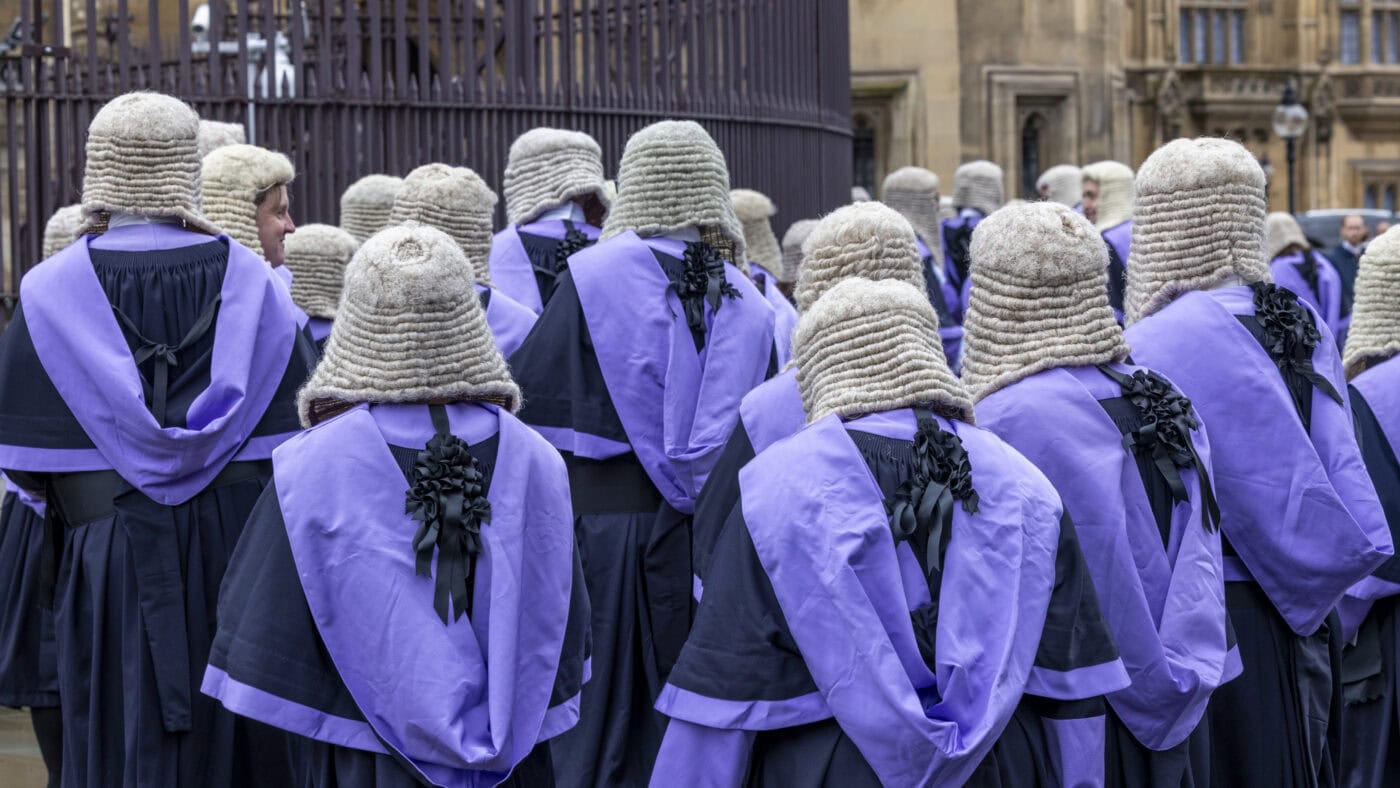It is time to choose your favourite cliché. Grasp the nettle, bite the bullet. Whichever it is, Kemi Badenoch has done it. For years, many eminent Tories have been aware that the European Convention on Human Rights (ECHR) and its legal penumbra are causing problems here. But there were determined efforts at evasion. Just kick the can down the road and somehow the difficulty would disappear. That has not happened. Instead, it has got worse. Badenoch has now decided to confront the issue.
The whole matter highlights a difference between England and France. Picture two Frenchmen discussing a complex question. ‘That may be OK in practice’, says one of them, ‘but would it work in theory?’ That is – probably – only a joke, but it explains a lot. The English are theory-averse. They are happy to muddle along proclaiming ‘if it ain’t broke, don’t fix it’. Hence the contrast between the French and many continental legal systems, much more formulaic, and the English one, based on common law. There were crises, in which religion was a vital factor, but even so, England was a unitary state from early on. So its laws and its constitution were able to evolve.
As late – or as early – as the beginning of the 12th century, English law was the law of Westminster Hall. By the end of that century, it had become the law of all England. The common law. Judges played a crucial role. In those days, parliament passed very few statutes. In a fruitful dialectic, judges applied old principles to new circumstances, in the interests of justice. We should not be excessively romantic. If disputes arose, powerful nobles could often impose their will, irrespective of the law. But with the exception of some Italian and Flemish city states, the English system was less oppressive than its continental equivalents, and mythology played a part. Although this would have come as news to the Barons who forced the King to accept Magna Carta, the belief persisted that Englishmen enjoyed basic rights, guaranteed by the law.
Down the centuries, common law retained its prestige. The second American president, John Adams, actually declared that it was an example of divine providence. Most of the United States still bases its legal system on the common law, as do many Commonwealth countries.
In the 20th century, the English system came under strain, partly because successive governments would not stop legislating. One Oxford history finals exam no doubt included the following item: ‘The Middle Ages were good at law but not so hot on order: discuss.’ There could be a variant: ‘For the Middle Ages, read modern Britain: discuss.’
But the common law still worked. One of its great proponents was the 18th-century jurist Lord Chief Justice Mansfield, who set Britain on the path to abolishing slavery. A slave had escaped in England and his owners wanted him back. Mansfield did not grant their request. He declared that slavery was such an unnatural circumstance that it could only exist if there were positive laws in its favour. As there were no such laws in Britain, there could be no slavery. This, alas, did not apply in the West Indies.
In the 1960s, when Roy Jenkins was Home Secretary, divorce was made easier, as was abortion, while homosexuality was legalised and the death penalty abolished. Admittedly, the initiative in all these cases came from parliament rather than the judges; justifiable statute-making, one could say. But it owed nothing to any European court or convention.
Over recent years, there have been many reasons to complain about the way Britain is governed. So one might argue that there is a coherent case for arguing that we would have been better governed by foreigners.
But what has the ECHR ever done to improve the lot of British citizens? In one vital respect, indeed, the foreign influence has been wholly malign. In recent years, the UK has lost control of its borders. Illegal immigrants have been pouring into the country, and it has proved impossible to prevent this. Some of them have committed serious crimes, and there seems to be no way to deport them. There is only one method of dealing with this: decree that no illegal immigrant will ever be allowed to remain in Britain and that any serious criminal who has been given the right to remain will forfeit it.
That will sound hard-hearted and it would certainly find no favour with human rights and ECHR-inclined lawyers. So there is one obvious question: who governs Britain? In one corner, the ECHR and its supporters. They believe that universal systems of law-making should apply in all jurisdictions at all times whatever the inhabitants of those jurisdictions might wish.
Then there are most British Conservatives, who take a more limited view of the purpose of our laws. They think that English law exists to protect the persons, property and civic rights of His Majesty’s subjects. Law should support its handmaiden, order.
If that principle applied, law-abiding foreigners legally resident in this country would have nothing to fear. They would enjoy all the protections currently enjoyed by British citizens – and they would have less reason to worry about being assaulted by predatory illegal immigrants.
There is a choice, and there ought to be no room for compromise. Kemi Badenoch has not yet taken a decision but merely set up a committee. Even so, it is clear which way she inclines. In so doing, she has given Tory supporters a much-needed dollop of good news: even, in some quarters, optimism. More is needed. But a start has been made.
Click here to subscribe to our daily briefing – the best pieces from CapX and across the web.
CapX depends on the generosity of its readers. If you value what we do, please consider making a donation.


